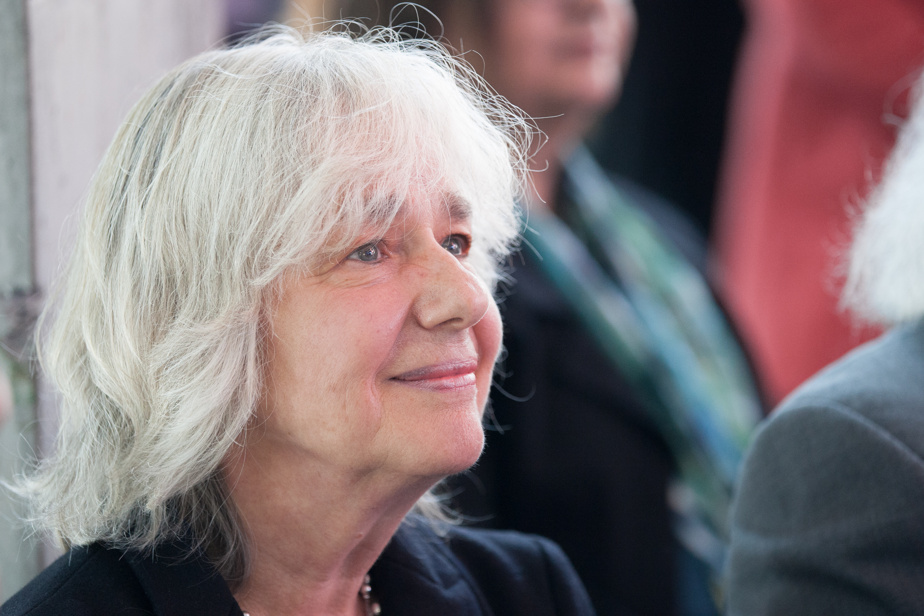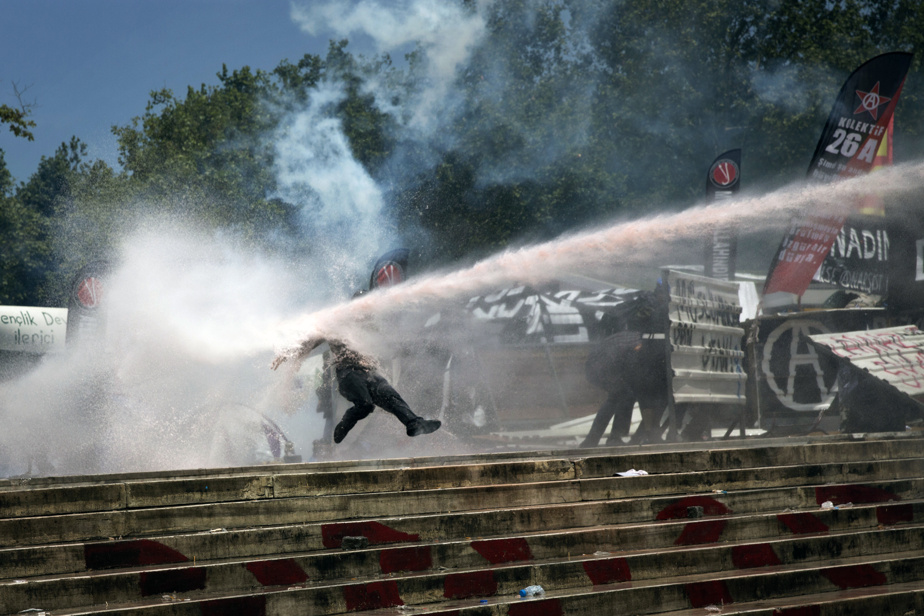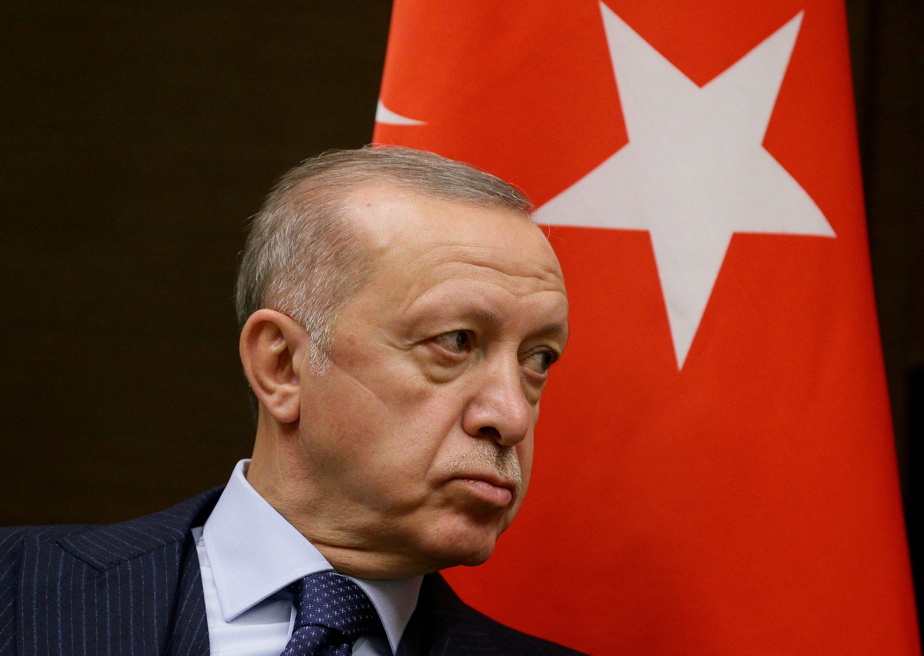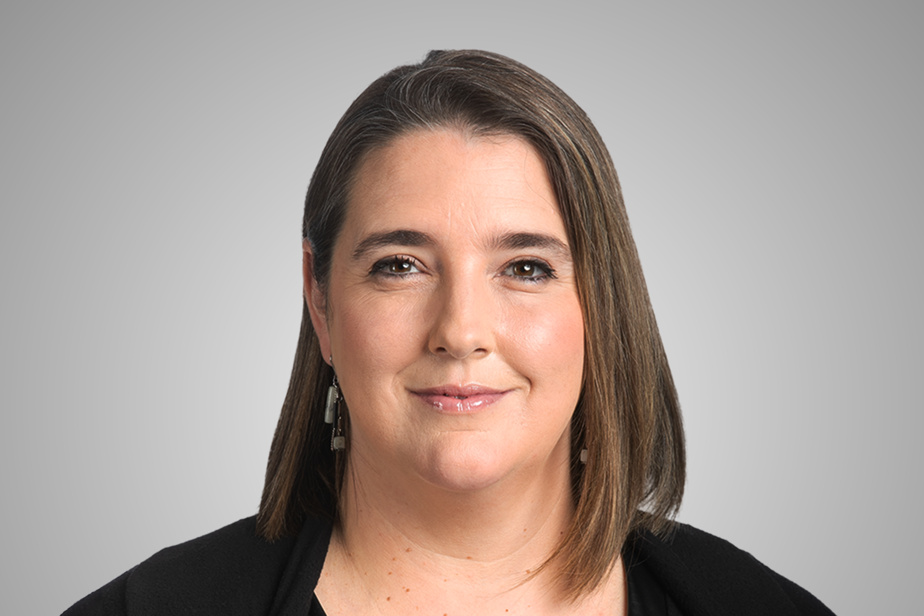Did the name Osman Kavala mean anything to you before the president of Turkey made a big milk boom and threatened to expel 10 ambassadors, including from Canada and the United States, at the gates of his country? Odds are, the answer is no.
Since the failed coup in July 2016, the Ankara regime has put so many political opponents in prison – we are talking about thousands of people – that it has been difficult to draw attention to any particular case.
Margaret Mendel, Professor Emeritus at Concordia University, knows all about it. She is a close friend of Osman Kavala, a businessman and philanthropist, and has been working for four years to promote her cause.
To highlight the absurdity of his arrest in November 2017 and the judicial process that followed. “This is all a big joke,” she said, still amazed at the fate of her old friend.
Heir to a large family business, Osman Kavala has been very active in Turkish civil society since the 1980 coup. He launched a major publishing house, and established an organization, Anadolu Kültür, that advocates reconciliation among the various cultures of contemporary Turkey—Kurdish, Armenian, and Turkish—through art. It also supports a number of organizations working to defend human rights and build a more open Turkey. After the major protests in Gezi Park in 2013, he criticized the state’s sweeping repression.
Nothing pleases President Recep Tayyip Erdogan, who cursed him for four years before he was arrested. Osman Kavala is a man of peace and culture. Locking him up was a way of telling others: See what happens when you refuse to shut up,” says M.I Mendel.

PHOTO EDOUARD PLANTE-FRÉCHETTE, archive press
Margaret Mendel at the Quebec Prize Show in 2013
In Turkey, the case caused an uproar, but internationally, the Osman Kavala case did not grab much headlines. “There was not much interest in this issue. There was an article on the right and the left from time to time,” says Margaret Mindel, who nonetheless continued to write to reporters, to speak with representatives of the Canadian government.
***
She is also in close contact with Osman Kavala’s wife, economist Aisha Bughra, with whom she received her Ph.D. at McGill University. From Istanbul, the latter moved heaven and earth to free her husband.
In recent months, she has received great support. In a 2020 decision, the European Court of Human Rights ordered Turkey to release Osman Kavala, ruling that there was no evidence against him and that his arrest was purely political.
The charges against Osman Kavala change as fast as the temperature over the Bosphorus. He was accused of financing and instigating the major demonstrations in Gezi Park, participating in the failed coup in 2016, and then participating in a major espionage operation. He was acquitted twice, but remains behind bars and is due to return to court in the coming weeks. He is liable to life imprisonment.

PHOTO ED OU, Archived from The New York Times
Initially led by environmentalists and residents who opposed the destruction of green spaces for real estate, the protests in Gezi Park quickly mobilized hundreds of thousands of people.
Despite the binding order of the European Court of Human Rights, Turkey has played a deaf ear. Ankara also did not flinch when the European Union Council of Ministers raised its tone last December. In February, it was the State Department’s turn to send an invitation to Headlights. Erdogan did not appreciate the gesture of the Biden administration.
However, only when the ambassadors of the United States, Canada, the Netherlands, Finland, New Zealand, Norway, Denmark, Sweden, France and Germany wrote a joint request for Erdogan’s release did he walk out of the speech and announce the book’s authors. The letter “persona non grata”. Without wanting it, he made the story of Osman Kavala known all over the world.
***
On Monday, the President of Turkey lowered his voice to the ambassadors. From the outside, he looks like a man shot in the foot, but this will not understand the logic of his intervention, and the nature of the “Big Boccani Show”.

Reuters photo
Turkish President Recep Tayyip Erdogan
In his anger at diplomats, President Erdoğan above all wanted to fuel the ludicrous story that he has been serving his constituents for a few years: Turkey is the target of the West, which does everything to harm its sovereignty and burdens its economy. . “He wants to raise the flag. His party has only 35% popular support and he is trying to find a way to restore his image by showing that he opposes the machinations of the West,” says Vahid Yossoy, a doctoral candidate in political science at the University of Montreal and an expert on Turkey.
If Erdogan changes his tone towards diplomats, he is not making any concessions on Osman Kavala, who remains in prison.
All this does not reassure Margaret Mendel in the least. “People around me who know Osman well thought that the diplomats’ intervention on his behalf was good news. I am not at all sure. I worry a lot for him and his wife, who is under great pressure,” she says.

“Extreme twitteraholic. Passionate travel nerd. Hardcore zombie trailblazer. Web fanatic. Evil bacon geek.”


